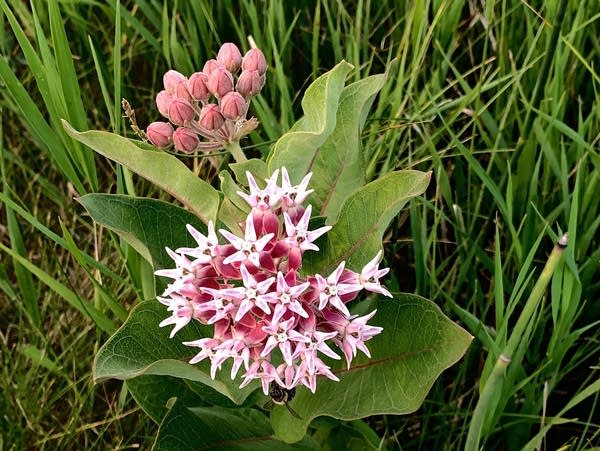Study finds pesticides in plants used as butterfly habitat

A milkweed plant photographed on July 11 in Marshall County, Minn.
Dan Gunderson | MPR News 2021
Go Deeper.
Create an account or log in to save stories.
Like this?
Thanks for liking this story! We have added it to a list of your favorite stories.


